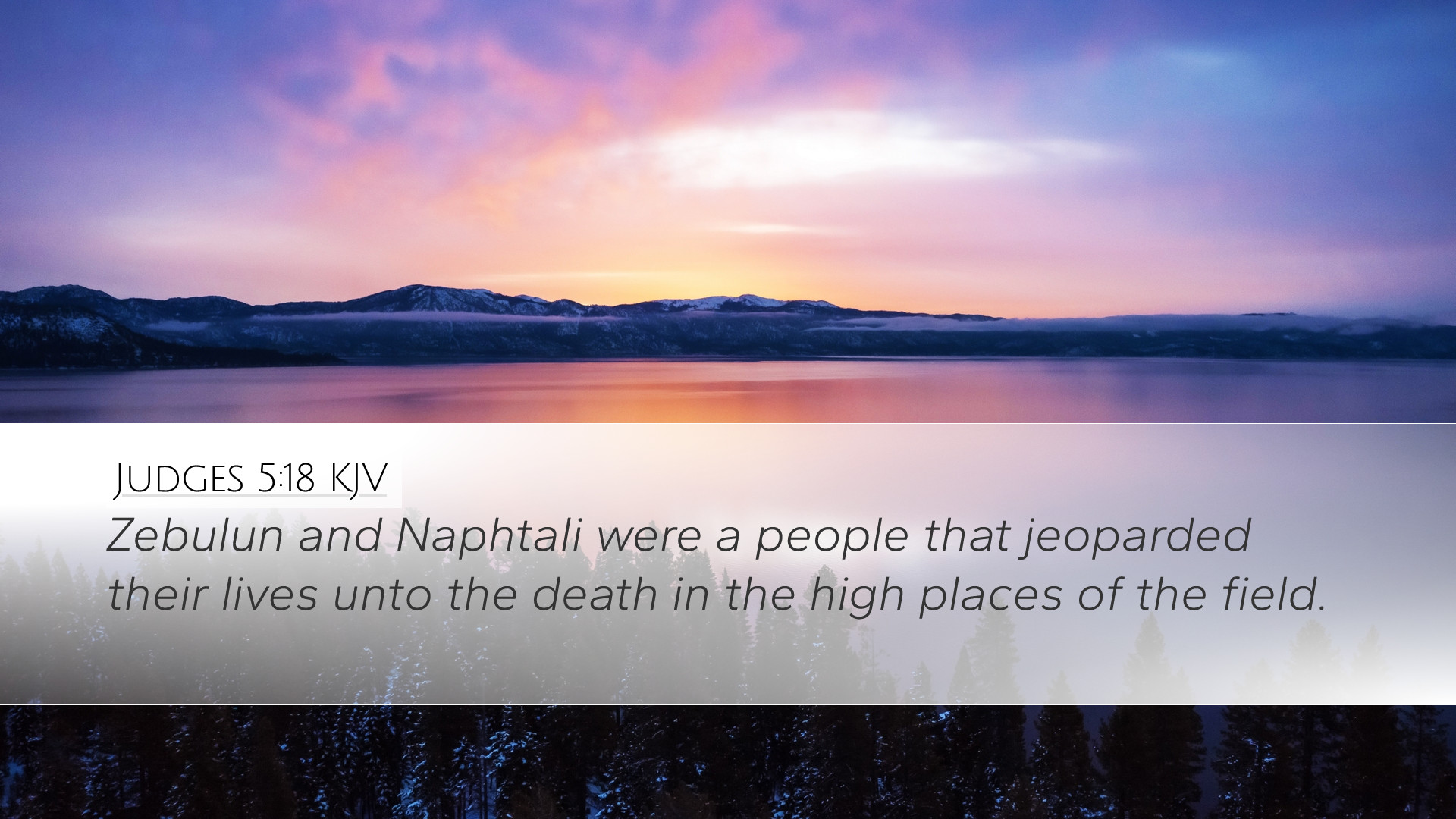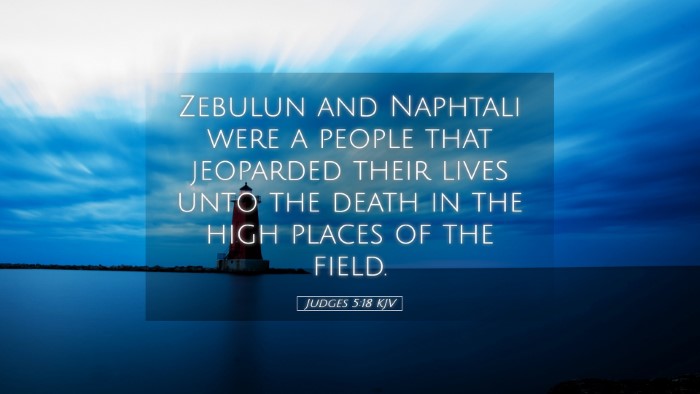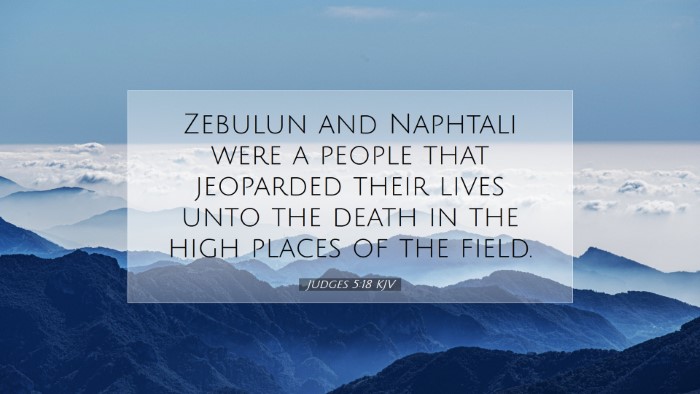Commentary on Judges 5:18
Judges 5:18 states: "Zebulun was a people that jeopardized their lives unto the death, and Naphtali, on the heights of the battlefield." This verse reflects the bravery and commitment of the tribes of Zebulun and Naphtali during the battle against Sisera, showcasing their willingness to risk their lives in the pursuit of justice and deliverance for Israel.
Overview of the Context
To fully appreciate the significance of Judges 5:18, it is important to consider its context within the narrative of Deborah and Barak's victory over the Canaanite army led by Sisera. Judges 5 is known as the "Song of Deborah," a poetic retelling of the events of Judges 4, emphasizing themes of divine deliverance and the valor of Israel's warriors.
The Tribes' Role in the Battle
- Zebulun: A Tribe of Valor
According to Matthew Henry, Zebulun's engagement in battle was not merely a physical act but a demonstration of loyalty to God and to their fellow Israelites. Their willingness to jeopardize their lives speaks to a higher commitment to the divine cause and national solidarity. The tribe's action is commendable as they took a stand during a crucial moment, despite the risks involved.
- Naphtali: Positioned for Battle
Albert Barnes emphasizes the geographical significance of Naphtali, being stationed in the highlands of the battlefield. Their strategic position allowed them to engage effectively against the adversaries. The nature of their high ground also suggests a readiness to launch assaults against Sisera's forces, encapsulating the concept of being prepared for spiritual warfare.
Thematic Elements
This verse reveals several theological themes important for pastors and theologians:
- Courage and Sacrifice
The willingness of Zebulun and Naphtali to risk their lives represents the call of believers to exhibit courage in the face of opposition. The principle of sacrifice for the sake of righteousness resonates throughout scripture, highlighting the importance of standing firm in faith during perilous times.
- Unity and Solidarity
The unity among the tribes during this conflict illustrates the necessity of cohesion among believers. Adam Clarke notes that such collaboration among the tribes was vital for achieving shared goals. This inspires interpretations of cooperation in church and community efforts today.
- Divine Assistance and Providence
The involvement of Zebulun and Naphtali in God's plan for deliverance underscores the belief that God assists those who take a stand for His purposes. Their actions prompted divine favor, illustrating that faith combined with action leads to significant outcomes.
Pastoral Applications
For pastors, this verse is rich in practical applications:
- Encouraging Faithfulness in Ministry
Just as Zebulun and Naphtali demonstrated their dedication through action, pastors are encouraged to inspire their congregations to engage actively in their faith communities. This may involve service projects, evangelism, or standing up for justice.
- Promoting Community Engagement
The example set by these tribes can be a call to action for communities of faith to collaborate in efforts that promote justice and aid the oppressed, reflecting the unity seen in the narrative.
- Preaching Courage
Pastors can draw from the theme of courage to motivate their congregations to face contemporary challenges, reminding them that God is with those who stand for truth and justice, much like He was with the Israelites in battle.
Conclusion
Judges 5:18 is a testament to the valor and commitment of Zebulun and Naphtali, revealing the principles of courage, solidarity, and divine assistance essential for understanding not only the biblical narrative but also for applying its lessons in today's context. The insights provided by public domain commentaries deepen our appreciation for this scripture and its relevance for present-day believers and leaders in the faith.


